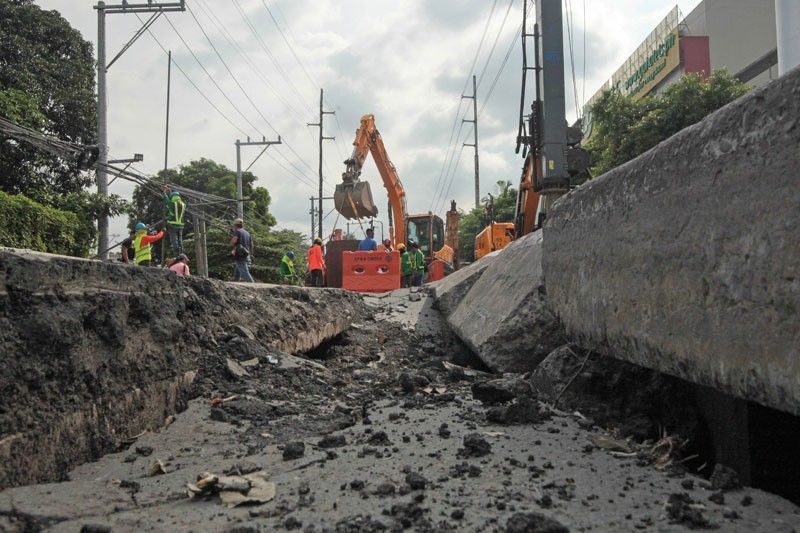COA slams ‘incompetent’ DPWH Road Board

MANILA, Philippines — Billions of pesos in public funds sourced from the Motor Vehicle User’s Charge (MVUC) were apparently mismanaged or worse, wasted by the Road Board of the Department of Public Works and Highways in its inefficient and incompetent implementation of the highway lighting program that started in 2013, according to state auditors.
The Commission on Audit (COA), in a 2017 report released only last week, said money collected from vehicle owners was to be used for the maintenance of national and provincial roads.
State auditors, however, noted that the National Road Lighting Program (NRLP) with a total budget of P3.973 billion to be spent from 2013 to 2016 was not efficiently and effectively implemented because it was carried out by the Road Board Secretariat (RBS), which did not have the technical capability and was not mandated to implement infrastructure projects.
COA auditors said the aspects of the projects were unnecessarily split into the lamp post civil works component and the supply and installation of lighting component and there was inadequate coordination with local government units (LGUs) for the maintenance of the completed projects.
Public Works Secretary Mark Villar said he would check with the RBS regarding the COA report on the alleged mismanagement of billions of pesos for the NRLP.
Villar said that while he is a member of the Road Board, he is not privy to the details of its day-to-day operations.
The audit team said the plan resulted in the delayed implementation of projects, construction of lamp posts without luminaries or lights and non-replacement of busted and/or missing lights.
“Consequently, the public was deprived of the benefits that could have been derived from eco-friendly and sufficiently lit roads,” the COA report read.
In principle, the NRLP project launched in 2012 had good intentions as it sought to set a new standard for safety and sustainability in the lighting of national roads by using LED lights, a technology that provides an alternative to traditional street lighting at 50 percent less electricity consumption.
But because it was implemented by the RBS, state auditors said the program encountered problems like Road Right of Way (RROW) and construction issues due to inadequate coordination with landowners and LGUs, which indicated “ineffective planning and supervision by the implementing DPWH Offices.”
“Due to the delays in the construction of lamp posts, the expected benefits from improved road visibility such as minimized road related accidents and enhanced security was not fully achieved,” the audit team noted.
Due to the non-installation of lights on the constructed lamp posts is some area as a result of poor planning, supervision, and coordination by the RBS, state auditors said the structures “cannot be utilized by the beneficiaries as intended and thus subject to wear and tear, damage and loss, which would eventually lead to loss of government funds.”
The COA report said the DPWH Road Board should address the problems found in the implementation of the NRLP and stop its practice of allowing the RBS to carry out projects beyond its mandated functions. – With Evelyn Macairan
- Latest
- Trending


























